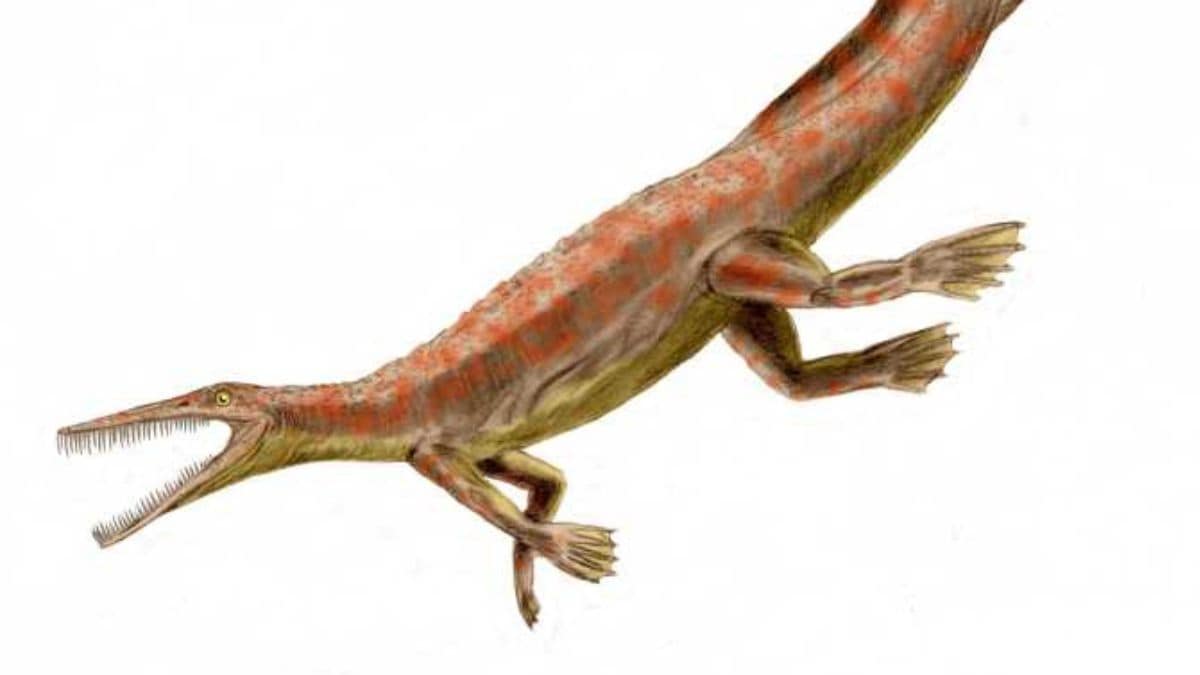
Fossil remains of ancient aquatic reptiles, known as mesosaurs, have been unearthed in Uruguay, pointing to the existence of specimens that far exceed previously recorded sizes. The fossils, which include skull fragments and associated bones, indicate that some mature mesosaurs may have grown to over twice the size of earlier documented adults. This revelation provides fresh insight into the potential gigantism of mesosaurs, reptiles that thrived during the Early Permian epoch in Gondwana.
Fossils from the Mangrullo Formation Shed Light on Mesosaur Size
According to a study published in Fossil Studies, the specimens were excavated from the Mangrullo Formation in northern Uruguay, an area already recognised for its exceptional fossil preservation. Dr. Graciela Piñeiro and her team at Universidad de la República analysed the remains, which included two fragmented skulls, vertebrae, and isolated bones. Comparisons with over 1,000 previously studied mesosaur fossils revealed that the new specimens, with skulls measuring 15–20 cm, belonged to individuals whose total lengths ranged from 1.5 to 2.5 metres.
Insights into Mesosaur Ontogeny and Environment
The study highlights that previously documented smaller mesosaurs likely represented juveniles or subadults, as reported by phys.org. These smaller sizes may reflect mass mortality events rather than the full growth potential of the species. The researchers also explored Bergmann’s rule, which associates body size with environmental factors, but concluded that ontogenetic growth patterns better explain the variability in size.
Potential Causes of Extinction Explored
Reports suggest that volcanic ashfalls, coupled with drought and desertification during the Permian period, significantly impacted mesosaur populations in the Paraná Basin. The study speculates that these environmental changes, along with increased tectonic activity during the formation of Pangea, contributed to the decline of these ancient reptiles.
This discovery underscores the complexity of mesosaur growth and survival dynamics, reshaping current understanding of these prehistoric aquatic reptiles.
Catch the latest from the Consumer Electronics Show on Gadgets 360, at our CES 2025 hub.



